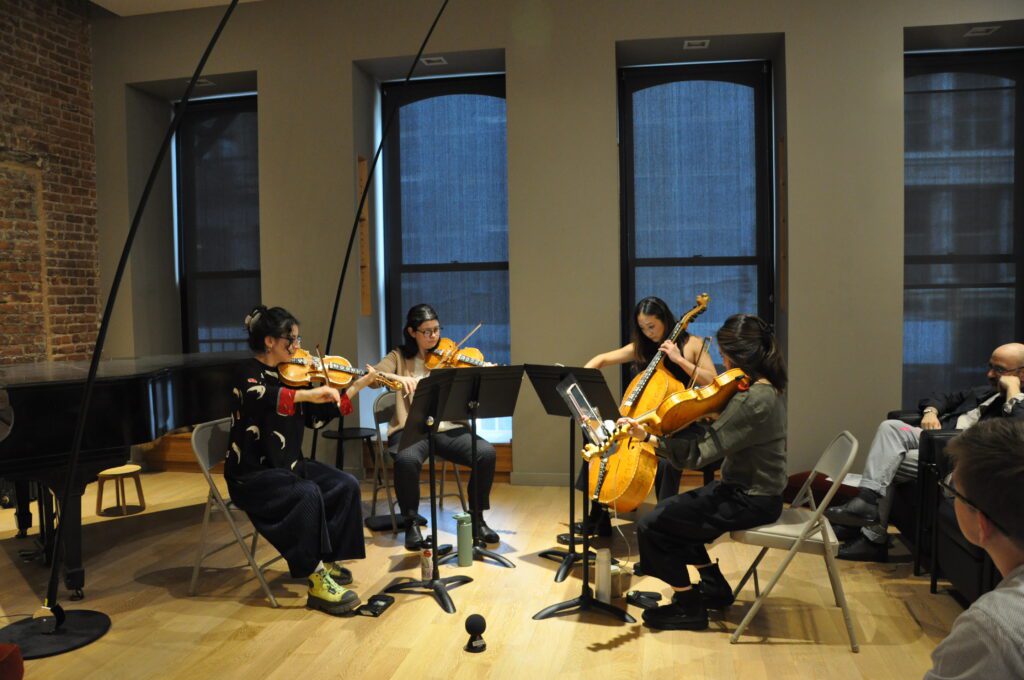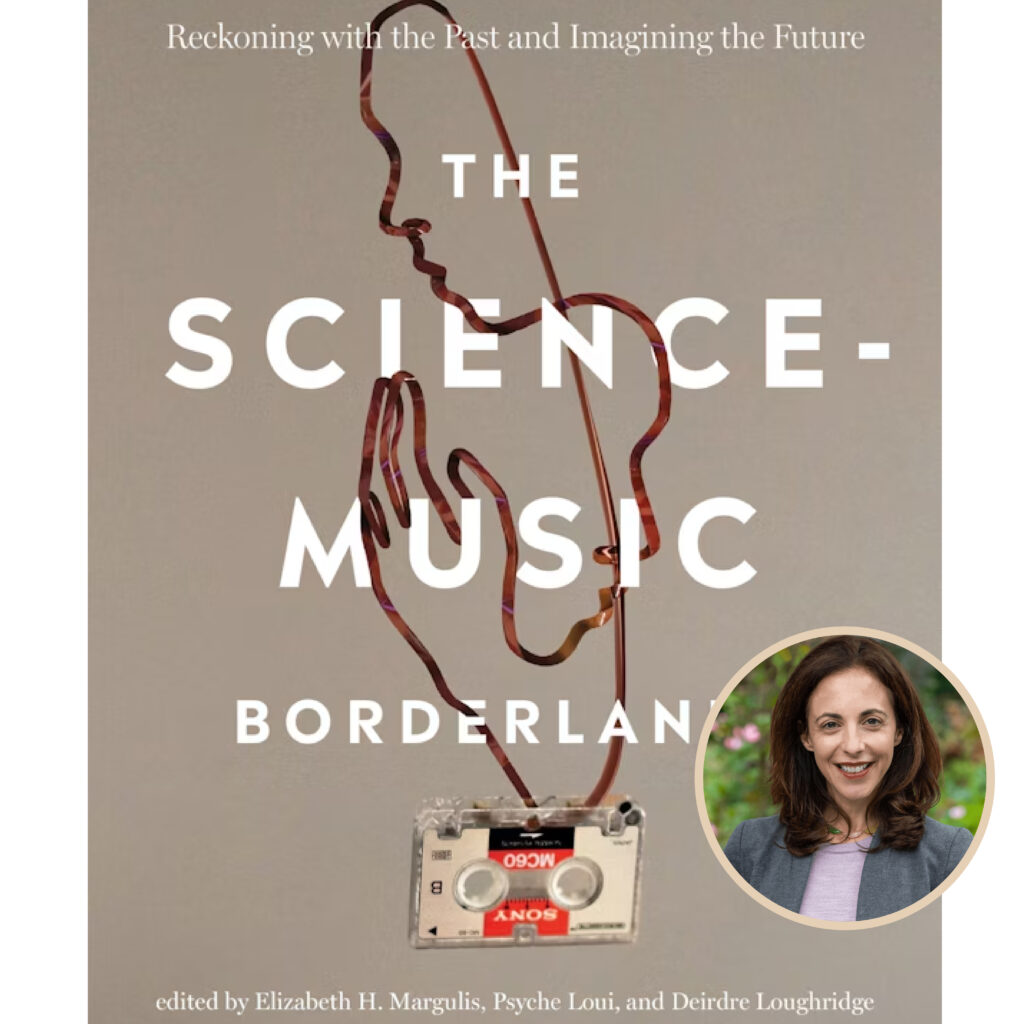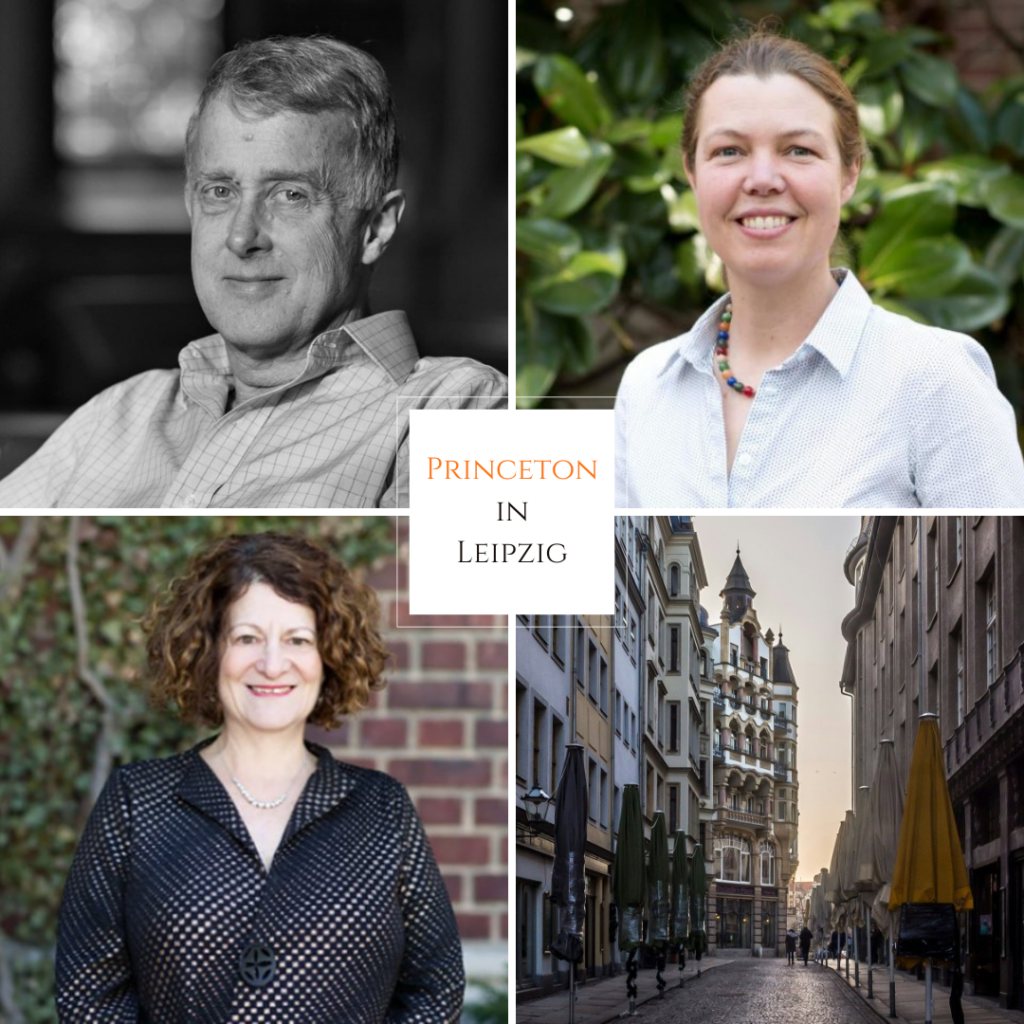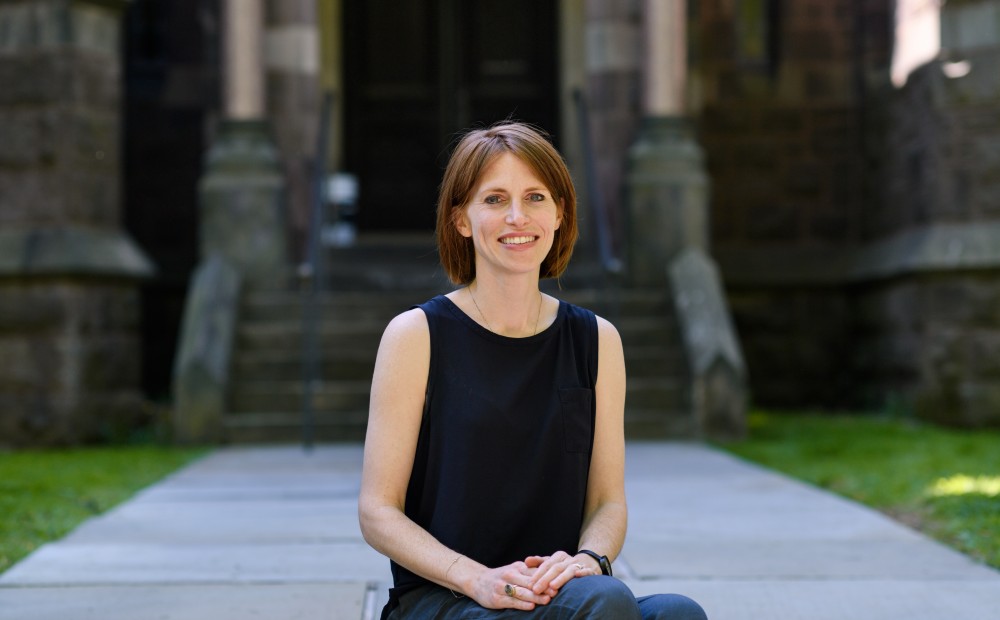Jamie Reuland
Assistant Professor of Music; Elias Boudinot Bicentennial Preceptor
What’s on a musicologist’s desk? Jamie Reuland, a scholar of music of the Middle Ages whose first book, Composing Empire: Music and the Making of Medieval Venice, is forthcoming in 2023, invited us in for a peek into the method behind the musicology. The following responses were provided in December 2022.
Not that kind of Audible. When I got the job at Princeton, my dad, who grew up in northern New Jersey, made this display case for me inside which he mounted a ticket from a Dartmouth-Princeton game that he attended at Palmer Stadium on November 20, 1965. I grew up in a really athletic family, and I think because of that I see a lot of continuity between music and sports – the way they both train habits of movement until they become skills, the way they both infuse time with a significance that borders on the magical. These days, I don’t get to practice either much, except as recreation, but I do spend a lot of my life talking about music. This summer I had this almost revelatory discovery, listening to baseball games on the radio with my son, that sports commentators actually do a very similar job to what I do – and they do it on the fly. The way they bring a time-bound event to life in the moment through telling details and through a deep knowledge of the game, the way they can conjure up a whole ambiance, it’s really so similar. My brother works for the NFL, training athletes, and he and I also have come to recognize this continuity in our respective work.
Rhymes and stress. Here I’ve got Petrarch’s Il Canzoniere, a collection of poems from the fourteenth century, and also Eugenio Montale’s Ossi di seppia, a twentieth-century volume of poetry. There’s this phenomenal thing that happened in the Middle Ages, which is the period my work focuses on, which is that there was a sudden and widespread recognition of the fact that accent, the stressed and unstressed patterns of language, was an available resource that people could use in creating verse, and alongside this, rhyme. So, all of a sudden in the twelfth century, there’s just this enormous revitalization of song that revels in these two really basic potentials in language. And I think that’s such an extraordinary thing; something about rhyme and accent seems so ancient that it’s hard to imagine that this is something that can be suddenly realized and then exploited so fully. The fact that this happened in song and not in (written) literature means that musicologists get to grapple with this historical recognition of something fresh in language, which I just love. On top of the Petrarch volume, I have Eugenio Montale’s Ossi di seppia (or Cuttlefish Bones). Most of my work on vernacular song is related to the Italian sphere, and I always think it’s important to stay connected to the contemporary language as well, and I love Montale’s verse, this volume of it published almost a century ago.
A chantar m’er (Comtessa de Dia)
Heavy lifting. I’ve also got on my desk one volume from a very heavy four-volume set of scholarship by a musicologist named Giulio Cattin that I got in 2016 when I was doing research in Venice. I was on a walk with my husband and then-eight-month-old son when we ended up at the place where Cattin’s set of volumes had been published. I had the gumption to ask if they would sell me the set at a discounted price, and, somehow, they said yes. But that meant we had to carry them back from one side of the city to where we were staying. I remember getting into a row on the Accademia Bridge thinking there’s no way we’re gonna be able to get this back to our hotel. Cattin’s work, called Musica e liturgia a San Marco, brings together all known sources related to the music and liturgy at the Basilica San Marco in Venice. It’s an enormous scholarly enterprise, and indispensable to my research. It actually occasioned a real discovery here in Princeton a couple years ago: I was looking at some new acquisitions – fragments of music from the fourteenth century that had once belonged to a whole manuscript – and because of Cattin’s really robust descriptions of the source I was able to identify sixty pages that had been cut out of stolen antiphoner that had belonged to the Basilica San Marco. I had no idea coming into Rare Books and Special Collections that day that I would be able to identify stolen goods, but with good scholarship like this, you can do these things. I like thinking back to that moment on the bridge in Venice because it makes me reflect on how there’s some scholarship that ends up in smart little paperback volumes that you can throw into your purse and read in a waiting room, and then there’s some scholarship like this that is so complex and cumbersome in what it’s trying to convey that it sends scholars to the chiropractor.
Take a seat. Which brings me to the set of chairs that I have in my office. Because I deal with such large-form scholarship and sources, there’s a lot of heavy lifting involved. I’ve got three different chairs in my office, all which support my back in various ways, because I’m constantly suffering from back pain. I like all three of my chairs, and I think rotating them is therapeutic.
Old-fashioned delights. And this may be a goofy thing, but I love my standard issue landline phone here. I derive so much pleasure from this thing. I love the heft of the receiver. I love the way it feels to push real buttons. I love the whole ritual you have to go through to enter in a code if you want to make an external call. My friend and office neighbor Juri Seo makes fun of all the outdated machinery I’m in the habit of using. But I hope they never take this away from me because it’s something that brings me small doses of daily joy.
In Other News

Resonant Revival: How a Norwegian Folk Fiddle Found a New Voice at Princeton
May 19, 2025
Dan Trueman, Chair of the Music Department, introduces Norwegian folk instruments to a new generation of composers and performers.

Elizabeth Margulis on the Frontiers of Music Cognition
Jan 22, 2025
The Department of Music is thrilled to congratulate musicology professor and Director of Graduate Studies Elizabeth Margulis, who has received the Ruth A. Solie Award for her editorial contributions to The Science-Music Borderlands: Reckoning with the Past and Imagining the Future.

Announcing the Launch of Princeton in Leipzig
Jan 7, 2025
Enrollment in “Princeton in Leipzig” has been extended to March 2, 2025! The Princeton Music Department is excited to announce the launch of Princeton in Leipzig, a summer study abroad …

